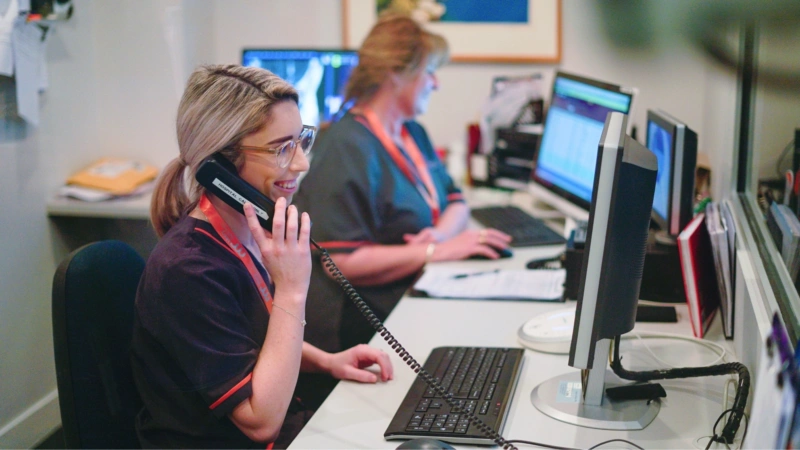Fluoroscopy
Available at
Overview
Fluoroscopy is an imaging technique that uses low dose X-ray to obtain real-time images. If an X-ray is like a photograph, think of fluoroscopy as a movie (a very short one though), as it produces moving images.
There are a number of fluoroscopic procedures performed at Allevia Radiology including:
- Arthrograms
- Barium Swallow/Meal
- Gastrograffin Enema
- Cystograms and Urethrograms
- Dacrocystogram
- Discogram
- Myelogram
- Steroid Injections
- Sialogram
What to expect
You need a referral from your doctor to be able to book an appointment for these scans.
The preparation required for each procedure varies. When booking an appointment, you will be told specific preparation or dietary requirements.
Resources
To make things easy for you, we’ve prepared some simple downloadable guides for our examinations. You can download these easily and print them off for your reference.
Please note, not all preparations are included here. The preparation listed above is only a guide, you will be advised of specific details when making your appointment.
Risks
The health risk from exposure to medical radiation is generally outweighed by the health benefit. If you are pregnant or there is a possibility that you could be pregnant, please contact your doctor to discuss the procedure.
FAQs
Why do I need to drink barium?
Why do I need to drink barium?
This is because normally your oesophagus, stomach and duodenum do not show up on X-ray films as they are similar in density to the surrounding tissues. Barium is a harmless contrast which forms a thin lining on the inside of your stomach and digestive tract so that the surfaces are clearly outlined.
Are there any after effects?
Are there any after effects?
It is dependent on the examination used.
- Barium may cause constipation.
- Urinary examination - The liquid inserted into the bladder can feel slightly “sticky” when it dries, and a small number of people may experience a urinary tract infection after having the catheter inserted or mild discomfort while passing urine for the first time after the study. A very small amount of blood may be passed in the urine immediately after the procedure, but this is not important if it is small and does not last. Any discomfort should be brief and should not increase. If there is persistent blood in the urine, bad smelling urine, unexplained irritability or fever, please contact your GP or the doctor who referred you to us. If these symptoms are severe, contact your doctor straightaway.
- Discography – may experience back pain for several hours.
- Myelogram – the most common side effects you may get are headache, nausea, and vomiting which become apparent within 24 hours and are all transitory.
- Sialogram – some experience swelling or aching in the face.
Pricing
ACC: No Charge – Specialist Referred only
Private/Insurance: For an estimate of cost, please phone 0800 497 297 or email [email protected] with a copy of your referral.

Ready to get started?
